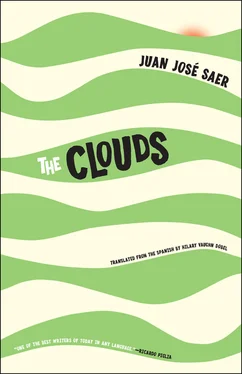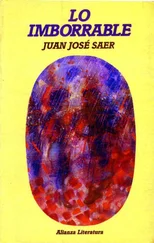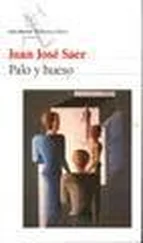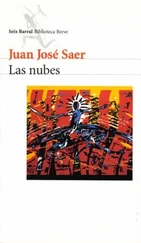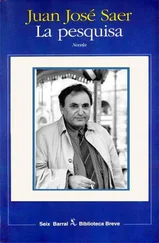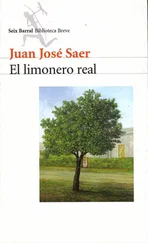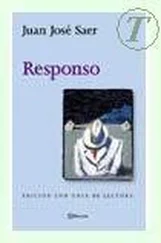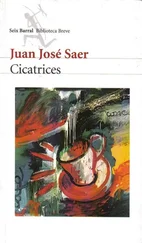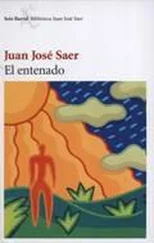We were a diverse and colorful convoy: One part of the escort went before us and the other brought up the rear. My carriage came at the head, and those of the five patients followed behind, then the Basque’s warehouse, and finally the women’s wagon. Of the carrt-dwellers, only Troncoso and I traveled by horse, he on his tall and skittish blue roan, so tense and lively it was nearly always reined in and ready to break into a gallop at any moment. It seemed also to have contracted its rider’s strange ailment, held in a state of exaggerated activity, morbid and unceasing. The escort soldiers did not wear uniforms, but dressed more capriciously, and though several tattered, faded military garments had made it into that ragged assemblage, the diversity of the rest ultimately caused it to lose all unity. From that haphazard motley, diametrically opposed to the careful design implied by the uniform, which seeks repetition, order, and symmetry, no doubt gave off an equally lively effect, especially from the colors and designs on the ponchos — solid, striped, dark or light, fringed or unfringed — that, in the desert’s empty space, seemed to take on additional clarity, especially in those early days, when they swelled in the icy southerly wind or fluttered over the backs of their owners. The wagons shone dimly at first, too, as they had been cleaned, oiled, and partially repainted with the company colors by their own cart-men on their arrival from Paraguay. Following the last of the soldiers, a herd of fresh horses went meekly, driven by the horsemen who would take turns at the task. And, finally, ten or twelve stray dogs followed us with the same stubbornness, need, and eagerness as seagulls trailing a ship’s wake in search of sustenance.
As a doctor, my primary responsibility was, of course, to busy myself with my patients, but as Osuna hinted, and I came to understand, the posture of a leader or master was expected of me, so I locked myself in my carriage to ponder how I might display that posture more clearly, concluding that the best way was to underline the fact that it was I who paid the expenses for our expedition, though I later realized that those ragged mercenaries we called our escort — some of whom barely understood a word of Castilian because they came from Corrientes and Asunción and their mother tongue was the native language, Guaraní—expected me to make the necessary decisions about the direction of our unusual caravan. As it was impossible for me to carry out that duty without Osuna and the sergeant, I decided to adopt a distant and thoughtful attitude, delaying my response to their proposals and pretending rather to weigh the pro and contra of each before making a firm decision. I must say my farce yielded a far better result than expected, since the one who seemed to have the most doubts about my abilities, which is to say Osuna himself, turned out to be the most gullible of all. Many years later, he would still speak of me as a man of the plains, though never in my presence. In reality, I do not know if my authority prevailed because the wages were paid in the promised amounts and terms, or thanks to my professional reputation, for I was able to treat all the maladies those rustics endured over the long month of our trip with my little valet case of medical instruments and emergency remedies. Colds, diarrhea, scrapes, boils, insect stings, fever, back pain or hemorrhoids, or else old complaints, already bound to the bodies of their victims, flared up with the bustle of the trip, and not a single day went by in which one of those gauchos —thirty years later I use this word cautiously, although I know it has lost the somewhat insulting sense it had in those days — did not come to my carriage, embarrassed but helpless, to consult me.
We had barely left the city when, as I have prematurely mentioned, the evolution of young Prudencio Parra took an unexpected turn: I had found him completely prostrate in his bed, fist gripped tightly, gaze fixed upon the void, deep creases on his forehead and between the brows to give him that suffering and lifeless expression, and this gave way to a certain animation — as I dare call it only in comparison to the months-long, total stillness — whose singular feature was the series of movements he made with his hands, repeating them incessantly, even at meals, which he absorbed meekly and indifferently. He would sit up in his bunk, and, unbothered by the jostling, would begin his movements, which he could replicate for hours like a machine, every so often casting a slow and serious glance at his hands, followed by the faintest of sad smiles.
He would extend the fingers of his right hand and then slowly contract them, until it gave his hand the look of a claw, though soft and never threatening; after a brief pause he’d continue the same movement until he closed his fist completely. And finally, when his fist had been closed for several seconds, his left hand would cover it and squeeze it hard. All day long, whenever anyone was present (since, mad or sane, it is difficult to know how a person acts when he is alone) he would make those gestures. While they surprised me at first, I came to think of them before falling asleep, and I realized that they were familiar to me, and, though I did not know why, this brought to mind the arcades of Alcalá de Henares one sunny spring noontime, giving rise to an agreeable sensation in me. When I woke the next morning and my mind, locked at night by the keys of sleep, opened to wakefulness, the first thing that awaited me was the answer to that mysterious sense of familiarity: In philosophy, we had studied Cicero’s Academica , and as the exam period drew near, I went strolling down Alcalá’s main street with a friend, memorizing that page where Cicero describes how Zeno the Stoic showed his disciples the four stages of knowledge: Fingers extended signified Conception ( visum ); when he folded them in a bit was Assent ( assensus ), by which Conception becomes patent in our spirit; then, with closed fist, Zeno tried to show how, by way of Assent, one arrives at Firm Conviction ( comprehensio ) of said Conceptions. And, in the end, raising his left hand to his fist, enveloping it and squeezing forcefully, he showed that motion to his students and told them that it was Knowledge ( scientia ). On remembering this, I leapt out of bed, and having dressed myself summarily, barreled down to young Prudencio’s wagon where he, in that early hour, was asleep and peaceful-looking. His open hands rested palms-down on the gray poncho that covered him. The Paraguayan soldier who had been an army nurse, and as such was entrusted with the care of the Verde brothers, and whose duty it was to look after the patients with another of his comrades, had ably tidied up the bunk. Again I noticed, as I had already several times in his home that, judging by the state of his bed each morning, young Prudencio’s nights must have been restful indeed. I stayed, hoping he would rouse himself, for I was keen to observe him pass from sleep to waking, to see how the strange machinery of his hands would set itself in motion. After a long time, he rasied his eyelids, as was his custom, and if my presence startled him he made no sign of it. He sat up slowly in bed, eyes hooded, and, resting his back against the carriage wallboard, began to stretch out the fingers of his right hand, preparing his left in the air so that, when the first three movements of the cycle had been completed, the fourth, in which he covered his right fist with his left hand and pressed forcefully, might be performed. The points of the two ever-present bits of white cloth stuck out from his ears, for whenever anyone tried to take them Prudencio would howl piteously, forcing me to order his release. But the impressively sunken area from cheekbone to jaw, the recessed cheek, had filled out somewhat, and his face, still so pale, looked unquestionably rounder and healthier. As was customary, he made as if to ignore me, but something told me that, from the remote location where he had been inwardly secluded for several months to escape the tumult within himself and in the world, the remnants of his self, abandoned perhaps in the blackest corner of the universe, were broadcasting signs of life. That his movements were completely identical with the gestures that served Zeno the Stoic to enact the phases of knowledge for his disciples (according to Cicero), I had not attributed a priori to some inconceivable coincidence between the ravings of a sick boy and the imagery wrought by the father of the Stoics at the height of his faculties, as if logic and madness might arrive at the same symbols by different roads — which can happen more often than one might think — but rather attributed it to the more easily explainable fact that in his period of avid and haphazard reading, young Parra might have one day encountered in a paragraph of Cicero, immediately making it his own, the explication of that inextricable world in whose disorder his fragile mind, astonished and terrified, had been awakened without knowing why.
Читать дальше
